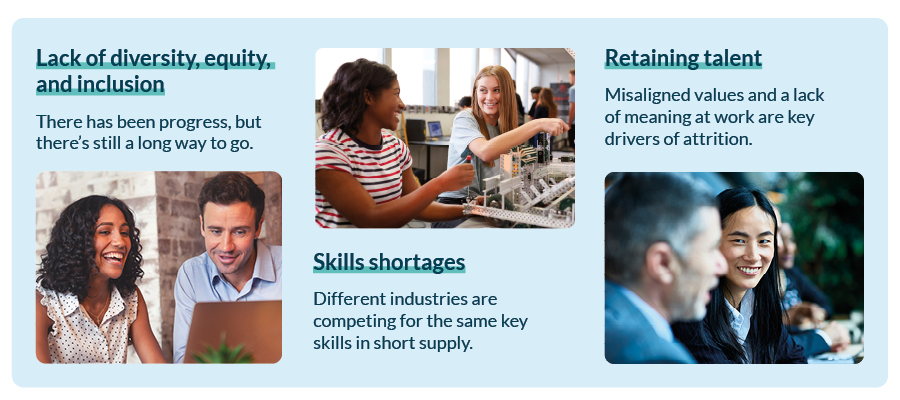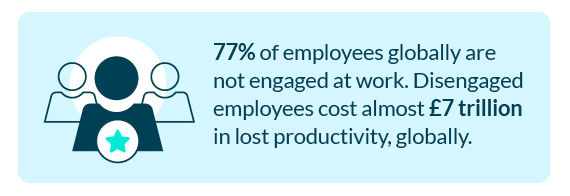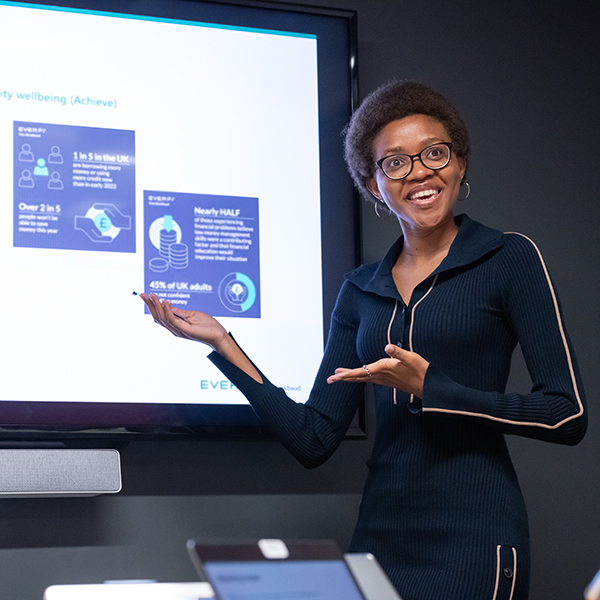Connect the dots of social impact and employee engagement

Social impact programmes are a way for organisations to support their local communities, contribute to a fairer world, and give back as they grow. But they can do much more: they can help you address Human Resources (HR) challenges such as fostering a diverse and inclusive workforce, attracting and retaining top talent, and enriching the talent pipeline with critical skills. If you want to learn how, you’re in the right place.
The challenges

The role of social impact programmes
Corporate Social Responsibility (CSR), Environmental, Social and Governance (ESG), and social purpose programmes are all designed to create a positive impact in the community, but they can do much more.
Here are two ways through which you can leverage your social impact programmes to support HR goals:
INVESTING IN COMMUNITY EDUCATION
 Adding to your existing school outreach programmes can help you address skills shortages and increase workforce diversity. What does that look like? You should go beyond apprenticeships and work experience opportunities. There are other ways in which you can work with schools to support your talent pipeline while creating lasting impact for even more students.
Adding to your existing school outreach programmes can help you address skills shortages and increase workforce diversity. What does that look like? You should go beyond apprenticeships and work experience opportunities. There are other ways in which you can work with schools to support your talent pipeline while creating lasting impact for even more students.
Schools are the best place to support a diverse group of young people in acquiring foundational skills that they will need when they enter the job market. You can support schools in delivering high-quality, engaging teaching on key topics such as data science, STEM, or digital literacy. This will help close the skills gap most industries are facing now and in the next decades.
INVOLVING EMPLOYEES IN SOCIAL GOOD
Giving your employees the opportunity to participate in social impact initiatives helps create a culture of inclusion and purpose. This will support your aim to better attract, retain, and engage talent.
 Volunteering activities, for example, are great opportunities for teams to connect and strengthen bonds, leading to higher levels of engagement and satisfaction at work. Skills-based volunteering, which leverages employees’ talents to meet a community need, can be particularly effective in promoting a sense of purpose at work.
Volunteering activities, for example, are great opportunities for teams to connect and strengthen bonds, leading to higher levels of engagement and satisfaction at work. Skills-based volunteering, which leverages employees’ talents to meet a community need, can be particularly effective in promoting a sense of purpose at work.
Likewise, encouraging employee giving or fundraising programmes provides workers with the opportunity to rally behind causes they are passionate about. This fosters a sense of purpose and wellbeing and, in turn, makes them more likely to stay with the organisation.
Takeaways
We believe – and research backs us up – that business purpose is a secret weapon that can help organisations meet HR objectives. Companies can leverage CSR, ESG, or social impact programmes to demonstrate to employees and candidates what they care about and to nurture their talent pipeline. Here are three actions to consider:
 1. LEVERAGE CORPORATE SOCIAL IMPACT TO ADDRESS HR CHALLENGES.
1. LEVERAGE CORPORATE SOCIAL IMPACT TO ADDRESS HR CHALLENGES.
By working with schools, your organisation can democratise access to skills education for a diverse population of young people. This will nurture a diverse and skilled talent pipeline. At the same time, building a culture of purpose – through employee volunteering and charitable giving – will attract talent and reduce the risk of turnover.
 2. ALIGN YOUR SOCIAL IMPACT AND EMPLOYEE ENGAGEMENT STRATEGIES.
2. ALIGN YOUR SOCIAL IMPACT AND EMPLOYEE ENGAGEMENT STRATEGIES.
To achieve powerful social impact and make your company stand out among employers, consider consolidating your community education, corporate grants, and employee giving and volunteering initiatives into one overarching strategy.
 3. USE THE POWER OF TECHNOLOGY.
3. USE THE POWER OF TECHNOLOGY.
The right tech can streamline and scale up your CSR, increase employee participation, and help you share a powerful story of social impact. Technology can automate administrative tasks, allow you to focus or broaden the reach of your programme, track activities, and report results with ease and impact.
Build a diverse and skilled workforce
Learn how social impact can help attract and retain the right talent.
Infographic data source:
Stay Informed
Best practices, the latest research, and insights from our expert network of partners, delivered right to your inbox.
Success!Thank you for signing up. We'll be in touch with more relevant content.







